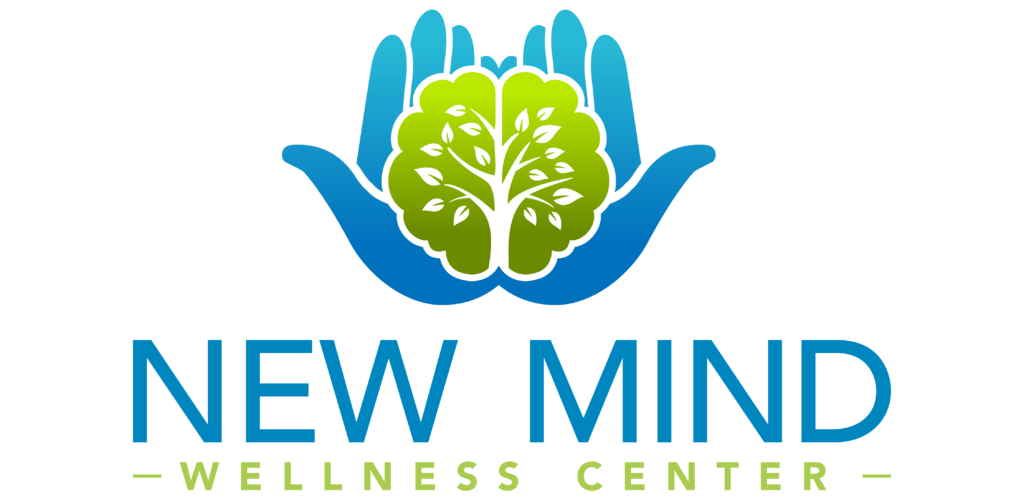Home » Depression Treatment » Seasonal Affective Disorder (SAD)
Treatment for Seasonal Affective Disorder in Philadelphia
Our seasonal affective disorder treatment in Philadelphia will help you overcome this form of depression.
Call us today or visit our admissions page to get started.

Home » Depression Treatment » Seasonal Affective Disorder (SAD)
Treatment for Seasonal Affective Disorder in Philadelphia
Our seasonal affective disorder treatment in Philadelphia will help you overcome this form of depression.
Call us today or visit our admissions page to get started.

Table of Contents
- What is Seasonal Affective Disorder (SAD)?
- Signs and Symptoms of Seasonal Affective Disorder
- How Common Is Seasonal Affective Disorder?
- How Do I Know I Need Seasonal Affective Disorder Treatment?
- Our Seasonal Affective Disorder Treatment Programs in Philadelphia
- How Is Seasonal Affective Disorder (SAD) Treated
- What To Expect at New Mind Wellness
- Other Types of Depression
- Find Treatment for Seasonal Affective Disorder in Philadelphia
Begin Mental Health Treatment in Philadelphia Today
Seasonal affective disorder (SAD), typically emerging in late fall or winter, is more than just a seasonal slump—it’s a recurring form of depression that aligns with the changing seasons. The symptoms can vary from person to person, but they often intensify as daylight decreases and temperatures drop. At New Mind Wellness, our treatment for seasonal affective disorder in Philadelphia focuses on addressing the root causes of seasonal mood shifts through a holistic and personalized approach.
Learn more about our depression treatment in Philadelphia and start on the road to healing today. Call us today at (610)772-8120 to get started.
What is Seasonal Affective Disorder (SAD)?
Seasonal affective disorder (SAD) is a form of depression that surfaces at certain times of the year, most often during fall and winter. However, it is not simply a case of the “winter blues.” SAD is a legitimate mental health condition that can deeply affect a person’s daily functioning and emotional well-being. People with SAD often experience persistent low mood, fatigue, and a loss of interest in activities that they once enjoyed.
While the exact reasons behind SAD remain unclear, it is thought to be linked to decreased sunlight, which may disturb the body’s internal clock. Furthermore, this may alter levels of key brain chemicals like serotonin and melatonin, both of which influence mood and sleep.
Signs and Symptoms of Seasonal Affective Disorder
It is critical to be aware of the signs and symptoms of seasonal affective disorder, so that you can identify them in yourself or your loved ones and seek proper support. If the below symptoms are correlated with seasonal changes, they are most likely indicators of SAD:
- Ongoing low mood
- Feelings of hopelessness and despair
- Cravings for starchy or sugary foods (this often results in unintended weight gain)
- Intense lack of energy
- Trouble focusing or forgetfulness
- Loss of appetite
- Social withdrawal from family and friends
- Disrupted sleep routine (such as oversleeping or insomnia)
- Small tasks feeling overwhelming or very tiring
- Loss of interest in once enjoyed activities
- Low self-esteem
- Heightened sensitivity
- Unexplained headaches, muscle tension, or soreness
- Increased frustration and irritability
- In severe cases, thoughts of death, self-harm, or suicide
How Common Is Seasonal Affective Disorder?
Seasonal affective disorder (SAD) is relatively common, particularly in regions that experience long and dark winters. In fact, it is estimated that millions of people are affected each year, with women and younger adults being more frequently diagnosed.
The prevalence of SAD tends to increase the farther one lives from the equator—where seasonal daylight changes are more extreme. Though many individuals may notice a slight dip in mood during the colder months, those with SAD experience more intense and recurring symptoms that can interfere with their quality of life.
How Do I Know I Need Seasonal Affective Disorder Treatment?
Individuals may require treatment for SAD if they notice that their mood, energy levels, and overall well-being consistently decline during specific seasons, usually fall and winter, and get better when the seasons change. Signs a person is experiencing more than just a temporary low mood include persistent sadness, loss of interest in things they usually enjoy, changes in sleep or appetite, and difficulty concentrating.
If these symptoms start to interfere with a person’s routine, relationships, or work, it’s important that they seek help from a healthcare professional who can evaluate their condition and find appropriate treatment.
Take Our Depression Quiz
Our Seasonal Affective Disorder Treatment Programs in Philadelphia
At New Mind Wellness, we provide personalized programming to those battling mental health conditions, such as SAD. Our intent is to encourage symptom reduction and meaningful change by helping clients build healthy coping skills, enhance emotional stability, and boost resilience.
The programs we offer as part of our treatment for seasonal affective disorder in Philadelphia are listed below:
Partial Hospitalization Program (PHP)
Our partial hospitalization program (PHP) is ideal for those who need structured, daily therapeutic support. Clients attend intensive sessions five days a week, participating in a blend of individualized services. At the end of each day, they return to the comfort of home, maintaining a sense of freedom while benefiting from a high level of care.
Intensive Outpatient Program (IOP)
Our intensive outpatient program (IOP) is designed for those who are ready to step down from a PHP but still need a consistent level of support. With sessions held three to five days per week, IOP provides a balanced approach to continued treatment. Overall, this level of care helps strengthen an individual’s position in recovery while integrating more flexibility into their routine.
Outpatient Program (OP)
Outpatient programs (OPs) help clients maintain the progress they have made in treatment as they assimilate back into everyday life. With weekly therapy sessions and check-ins, our OP reinforces coping strategies and addresses any new or ongoing challenges. Participants can expect a focus on maintaining their emotional well-being while resuming work, school, and personal responsibilities.
How Is Seasonal Affective Disorder (SAD) Treated?
Our treatment for seasonal affective disorder in Philadelphia calls for more than just addressing low mood—it requires a thoughtful, well-rounded approach that acknowledges how seasonal changes can affect emotional, physical, and mental health. We consider each individual’s experience with SAD, offering a combination of evidence-based therapies and holistic wellness services. These include:
- Psychiatry: When symptoms of SAD interfere with daily life, medication may offer relief. Our psychiatrists carefully assess each client to determine whether antidepressants or other medications are appropriate, adjusting doses as needed.
- Group Therapy: Participating in group sessions helps to mitigate the isolation that often comes with SAD. Clients can connect with others who understand their struggles, offer mutual encouragement, and build a sense of community during the darker months.
- Red Light Therapy: By exposing the body to red and near-infrared light, this treatment may help elevate mood, improve sleep quality, and reduce inflammation—which are all common challenges during the winter months.
- EMDR Therapy: For those whose SAD symptoms are worsened by unresolved trauma, eye movement desensitization and reprocessing (EMDR) may be integrated into treatment.
- Genetic Testing: Genetic testing can reveal how a person’s body processes certain medications and nutrients, allowing our care team to better customize their treatment plan. This can be especially helpful in finding the right antidepressant for a person.
- Holistic Mental Health Treatment: Complementary practices such as yoga, meditation, breathwork, mindfulness, and nutrition counseling are integrated into our treatment plans to enhance overall well-being and help manage SAD-related stress and fatigue.
- Family Therapy: We offer family therapy for clients who want to involve loved ones in their healing process. These sessions foster better communication and help families learn how to provide meaningful support throughout the season and beyond.
- Individual Therapy: Individual therapy sessions allow clients to work in a one-on-one setting with a qualified therapist, focusing on their personal needs and recovery goals.
What To Expect at New Mind Wellness
At New Mind Wellness, we believe that healing begins with feeling seen, heard, and supported. Our center is thoughtfully designed to provide a calm and welcoming space where individuals can work through their mental health challenges with guidance from a compassionate, experienced team. Whether a person is starting their treatment journey or continuing it, our multidisciplinary approach empowers them to take meaningful steps toward long-term wellness.
Specific highlights of our Philadelphia-based center include:
- Supportive Environment: We offer a nurturing and nonjudgmental atmosphere that encourages open communication and personal growth.
- Experienced, Caring Team: Our staff is comprised of licensed professionals who tailor treatment plans to the unique needs and goals of each and every client.
- Holistic Approach: The goal of our care is to address a person’s emotional, mental, and physical well-being for lasting transformation.
- Healing-Focused Setting: Our tranquil space promotes self-reflection, clarity, and confidence.
- Life Integration Support: We provide clients with the tools and guidance necessary to build a sustainable, fulfilling life beyond treatment.
Other Types of Depression
Depression takes on many different forms, each with its own set of unique symptoms and causes. While brain chemistry plays a role, external factors like stress, trauma, and social environment can heavily influence the development of these conditions.
In addition to seasonal affective disorder, common types of depression include:
Major Depressive Disorder (MDD)
Major Depressive Disorder (MDD) is a serious mental health condition that disrupts daily life and diminishes interest in activities once enjoyed. It can lead to deep emotional pain, making everyday responsibilities and relationships feel overwhelming.
Perinatal Depression
This form of depression affects women during pregnancy (antenatal) or after childbirth (postpartum). It goes beyond typical mood changes and can significantly impact both the mother and her ability to care for her child.
Dysthymia
Also known as persistent depressive disorder, dysthymia involves chronic, low-grade depression that lasts for years. Though less intense than major depression, its long-term nature can wear down a person’s emotional resilience.
Find Treatment for Seasonal Affective Disorder in Philadelphia
It is time to take your SAD seriously. We understand how isolating and overwhelming the darker months may feel to those struggling with seasonal affective disorder. That’s why we offer customized programming tailored to meet the challenges of this specific condition as well as your unique needs and circumstances. Let us help you take the first step towards a happier, healthier way of life.
To learn more about how we can help, give us a call or visit our admissions page today.

